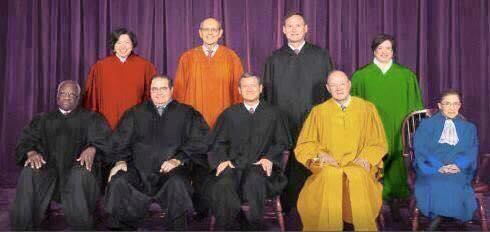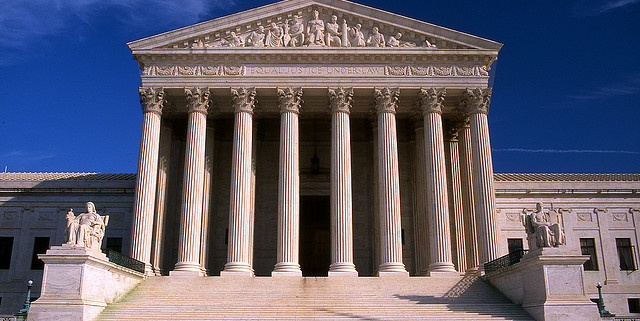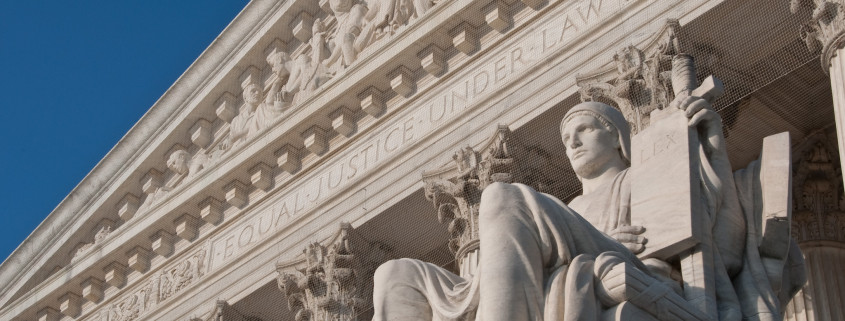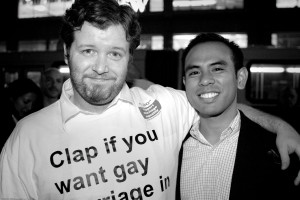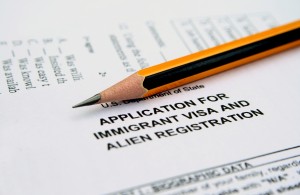Gay Marriage Legal In America – Has LGBT Equality in Same-sex Immigration been Achieved through Obergefell v. Hodges?
By Julie Oliver-Zhang, Esq., Amanda Utterback, Esq., and April Siruno
On June 26, 2015, the Supreme Court of the United States issued its opinion in Obergefell v. Hodges, and, in one ruling, made the LGBT right to marry the law of the land. All states must now issue marriage certificates to all American citizens seeking a life-time union, regardless of their sexual orientation. It is a landmark victory for the LGBT community and its allies that has been hard fought for decades. The legal history of same-sex marriage equality has been a long and rocky road, with inconsistent results in appellate courts from state to state.
Many commentators are glossing over just how close the LGBT community came to losing this war. After the pride parades and the celebrations that rang around the nation have simmered down, let’s not forget that the Supreme Court ruled 5 to 4 in favor of equal rights in gay marriage. 5 to 4 is by no means a landslide.
While many same-sex marriage advocates may feel the sense of emptiness that one does on the last line of a great novel, this decision merely leads to another chapter in the struggle for LGBT equality. Slavery was abolished in 1865, but Jim Crow laws lasted until 1965 and beyond. Women were allowed to vote in 1920, and yet, in 2015, only 20% of the United States Congress is female.
There is still much work to be done.
While our children may grow up in an America where same-sex marriage is matter of law, we still must confront frequent discrimination in the administration of law. Case in point, just three days after the Obergefell decision, the Attorney General of Texas, Ken Paxton, declared that if a county clerk or a public official has “religious objections” to issuing a marriage license to same-sex couples, they are entitled to deny such issuance.
The frightening fact is that people like Paxton are in positions of power. They are the decision-makers, or the legal authority, in deciding whether to grant a government benefit, a job, or an adopted baby to gays, lesbians, bisexuals, and transgendered people.
In immigration cases, for example, results for same-sex couples may differ from similarly-situated heterosexual couples depending on variations in personal and social values. Typically, the evidence of a good faith marriage, required in every marriage green card application, includes a couples’ illustrious dating history, or big weddings filled with familial love and acceptance. Where many gays and lesbians are still closeted because they fear rejection, discrimination, or even violence, how are same-sex couples supposed to produce comparable evidence of a good faith marriage? The reality is that the societal standards applied for assessing what a “real marriage” looks like remains skewed by traditional assumptions.
Another example involves those LBGT individuals in long-term relationships who are residing in this country illegally. Had the laws been different, they could have married their U.S. citizen partners and received a green card many years ago like any heterosexual couple. Although they are now are able to marry nationwide, immigration laws still present significant obstacles that would require the gay alien spouse threatened with removal from this country to submit an I-601 or I-601A waiver. Essentially, in order to cure their inadmissibility and ineligibility for a green card, this waiver must overcome the high bar that their U.S. citizen spouse would experience “extreme hardship” if the couple were forced to separate.
In terms of immigration, there are only 20 countries that recognize same-sex marriage. LGBT immigrants come to the United States to avail themselves to the protection of our civil liberties. Yet, for those who are filing for a same-sex green card, many are nervous about being judged based upon their sexual identity, rather than the strength of their spousal relationship. As such, can we really say that, as a nation, we truly have reached immigration equality?
To combat these specialized issues, same-sex immigration attorneys should focus on obtaining the highest-level of evidence and proof necessary to help the LGBT community truly achieve equal and fair results in their applications for green cards, asylum, visas, and other immigration benefits. While Obergefell is a historical case in the right direction, we understand the heavy burden in same-sex immigration. We assume that all things are not equal, just yet.

